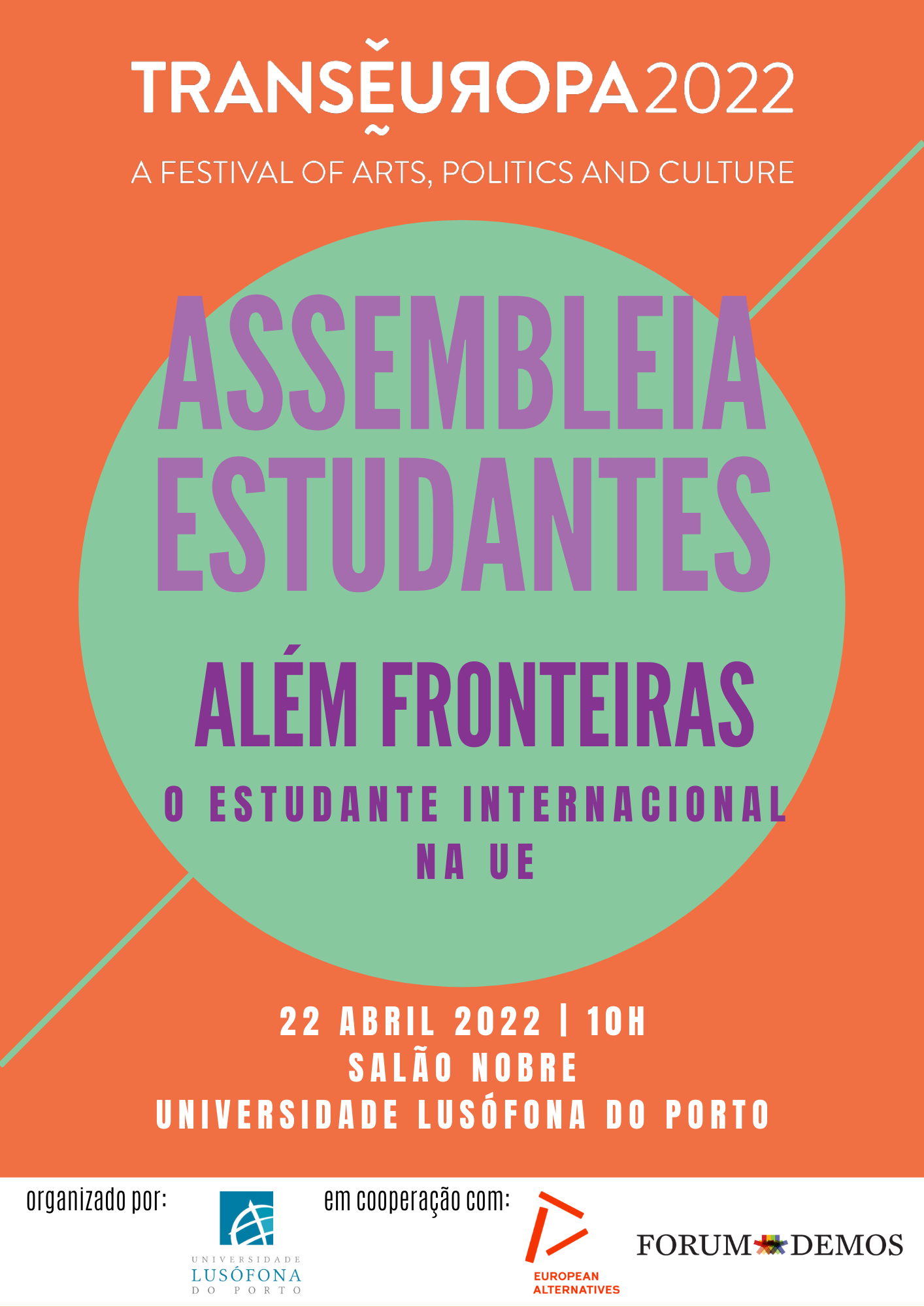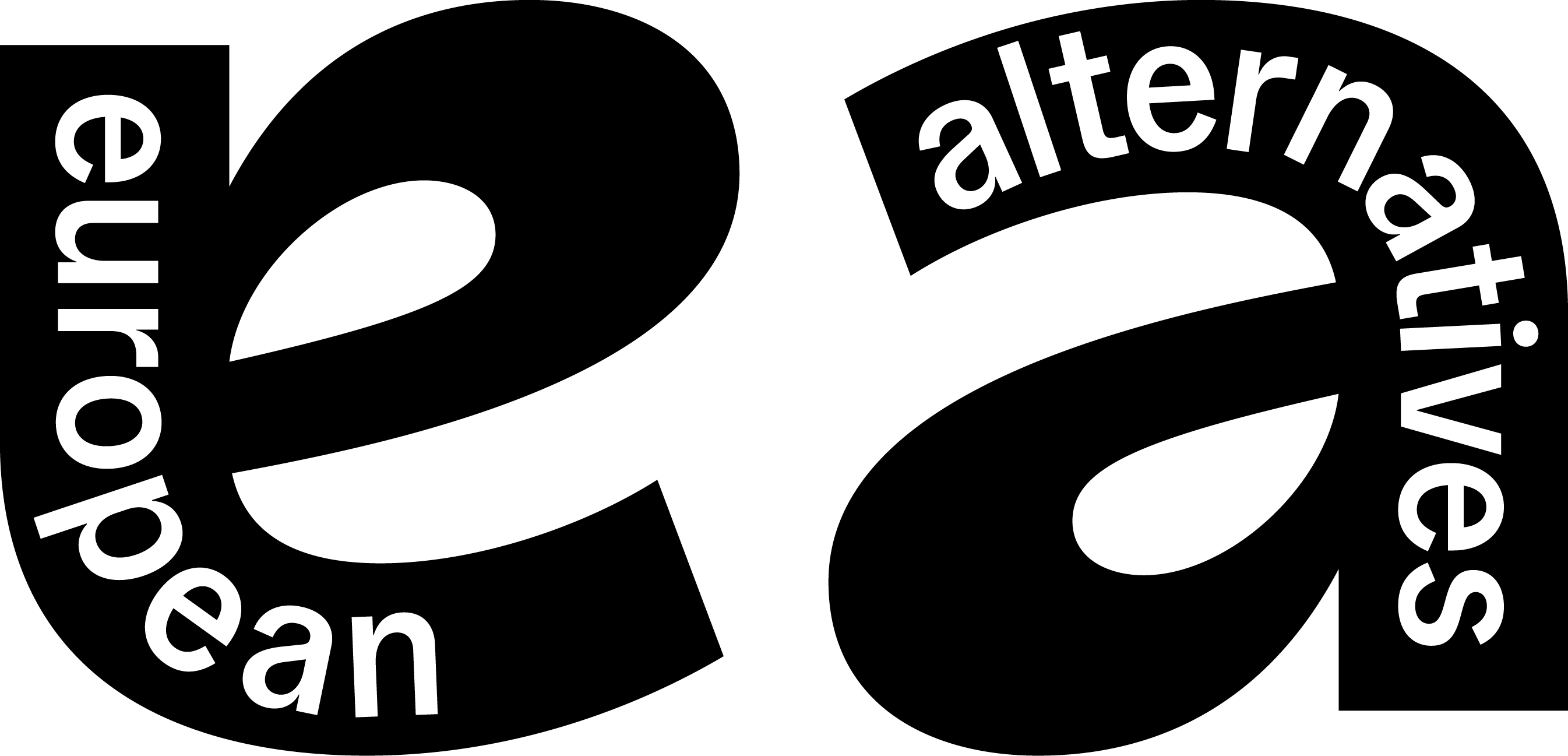The Universidade Lusófona do Porto joins TRANSEUROPA Festival for a get-together, organised by ULP students, on the status, reality and integration of international students in Higher Education in the European Union.
In this assembly, national and international university students – particularly those coming from Brazil and the CPLP countries – will come together to discuss, through their experience, and as a part of socially discriminated communities, the processes of hospitality and access to the law in the European academy – and in their societies.
The assembly will be divided in four different themes, proposing an interactive experience with specialists and other students.
Theme 1:: Management of Interculturality
Specialist speaker: Elisabete Pinto da Costa
Promoting good management of interculturality is essential nowadays, both to enhance the social inclusion of international students and to provide opportunities for these people to engage in the corresponding society in a respectful, ethical and sustainable way. The European Union increasingly has new immigrants who feel the need for better conditions in educational spaces – a need exacerbated by the current mass migration of Ukrainian refugees. It is in this context that the present topic proposes a space for understanding these difficulties, discussing new measures and tools for responding to these shortcomings.
How does the social environment affect the lives of international students? What measures would be ideal to ascertain the social and cultural conditions of these academic students? What is the greatest risk currently existing in European societies that can corrupt this social coexistence?
Theme 2:: Right to Information and Access to International Student Law
Specialist speaker: Rosário Anjos
Globalisation has stimulated an increase in the number of international students. Given this reality, it became necessary to elaborate rights involving them, both at a national and European level, however, there are still some dilemmas to be solved. At the same time, the Internet has massified access to information, but what information is this? The topic on international students’ rights will be approached with the aim of raising awareness not only on the issue of international students’ rights as students, but also as immigrants, the problems to access information and international and European law. Through this awareness, it is aimed to find solutions to some of these difficulties.
Is there a disparity between the reality of international students and their rights? What measures should be taken to make these rights a reality? Has the EU sought to mitigate this social, cultural, political or economic disparity?
Theme 3:: Changes in Higher Education in the European Union
Specialist speaker: Maria Lourdes Taylor
Over the last few decades, demand for higher education has exploded. The various economic, political and social changes in the European Union have promoted educational implications in education and there is a growing need to accommodate measures for a better integration of international students. The EU aims to create a European Education Area, and to increase the percentage of 30-34 year olds with higher education degrees to 50% by 2030. In addition, they expect the development of a network of European universities with legal status and granting European diplomas, the strengthening of the Erasmus + programme, the creation of the “European Student Card” and the automatic mutual recognition of diplomas and periods of learning between member states.
Will these changes be favourable to international students? Is the expected increase in the number of degree holders in higher education achievable? Will the change in recognition of diplomas contribute to greater integration of international students or less so?
Theme 4:: Sustainable development and cooperation projects with CPLP countries
Specialist Speaker: Renato Janine Ribeiro
The Community of Portuguese Language Countries (CPLP) began in 1996, and is made up of nine member states: Angola, Brazil, Cape Verde, Guinea-Bissau, Equatorial Guinea, Portugal, Mozambique, São Tomé and Príncipe and East Timor. Its main objective is a deep bond between the States-Parties, materialised through political and diplomatic concertation, cooperation in all spheres (economic, cultural, social, technical, scientific and legal) and in the promotion of the Portuguese language. Accordingly, the CPLP established the 2030 Agenda as a “global action plan and common vision to achieve sustainable development by 2030 in its three dimensions: social, economic and environmental”.
The theme on sustainable development and cooperation projects with CPLP countries aims to raise and debate these issues and their impact on international students, namely students who fall under the CPLP. Are other variants of the Portuguese language accepted in CPLP countries? Are the implementations of the 2030 Agenda effective in CPLP countries with regard to higher education? Is there differentiation in the treatment between students from the CPLP and students from the European Union in Portugal?

PARTNERS

